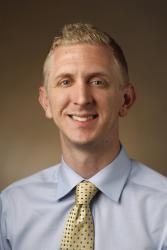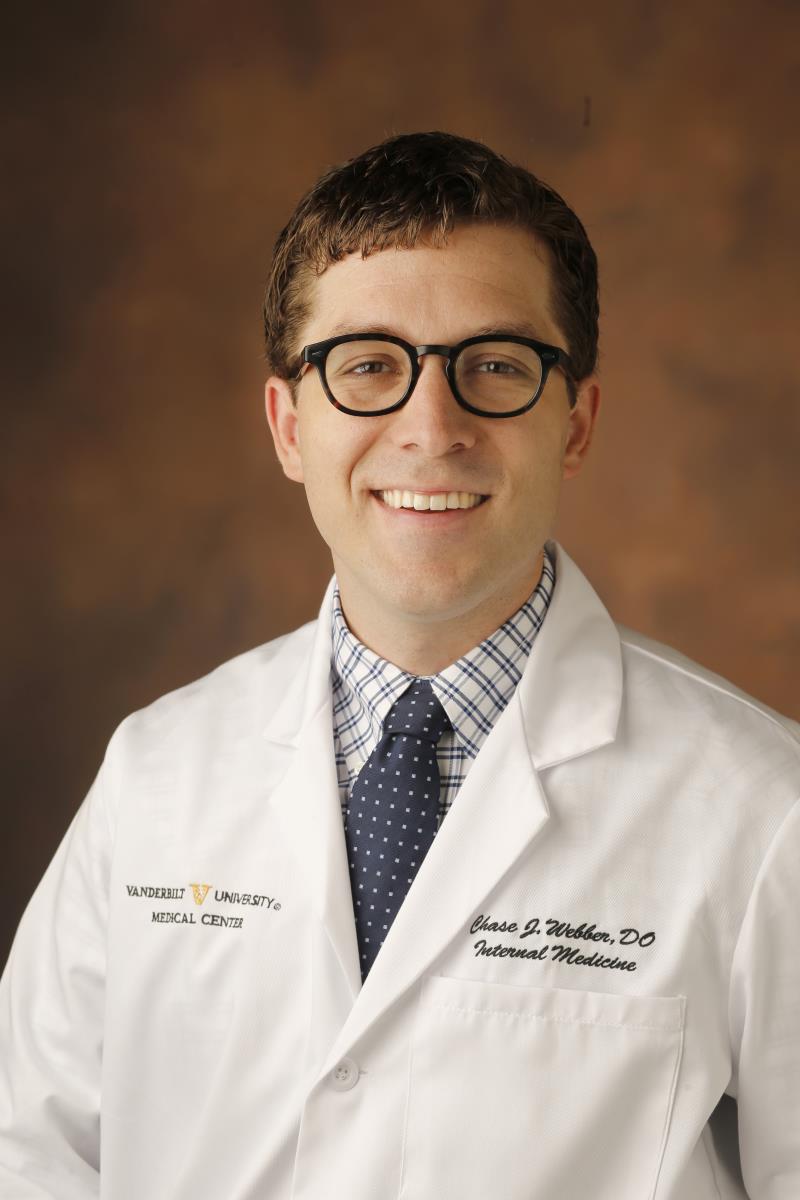Vanderbilt researchers are working to enhance the way medical students learn by creating an innovative tool that forges real-time connections between clinical practice and conceptual medical education.
Shane Stenner, M.D., M.S., Chase Webber, D.O., and a collaborative team of experts at Vanderbilt University School of Medicine (VUSM) and Vanderbilt University Medical Center (VUMC) recently received the American Medical Association’s ChangeMedEd Innovation grant to develop their precision education learner engagement tool.
Personalized Learning
Precision education was introduced by the AMA as a personalized approach to medical students and physicians as they progress along their educational careers.
“So much of clinical learning takes place outside of the progress note. Medical students learn from every patient encounter,” said Webber, associate professor of clinical medicine and biomedical informatics at VUMC. “Educators actively engage medical students to personalize their education, but sometimes the technology lags behind.”
“We are designing the Learning Engagement Tool to help catalyze and capture learning. If successful, medical students will identify their own learning patterns and become better learners.”
The custom digital learning system uses a precision education-controlled vocabulary – an electronic thesaurus that helps identify educationally valuable clinical concepts as students see patients.
The Learning Engagement software aims to empower medical students with real-time data and create a meaningful connection between what students learn in the clinic or hospital and the concepts they must master.
Merging Education and Biomedical Informatics
Vanderbilt is forging ahead in precision education by implementing this relatively young aspect of medical education throughout the institution.
“Our innovative approach draws from the rich history at Vanderbilt to bring together education and biomedical informatics. We have gathered the data to deliver the right educational materials, to the right person, in the right format, through the right channel, at the right time,” said Stenner, associate professor in the Departments of Biomedical Informatics and Medicine and associate dean for education design and informatics at VUSM.
He said the creators adapted the Vital Experiences logging tool to include information from clinical experiences and other educational tools in use at VUMC.
“The adaptive learning system allows them to engage more deeply in a topic and supports their growth.”
In using the software, a medical student logs a patient’s clinical finding into a database and then may request additional information to inform the diagnosis. For example, if a patient complains of shortness of breath, the medical student may make a diagnosis of congestive heart failure.
A natural-language-processing tool is integrated to compare the medical student’s vocabulary in the patient’s medical record to the precision education-controlled vocabulary. The student then receives information about the condition and may initiate a response. The recorded assessment is reviewed by a faculty member or resident, who offers feedback.
“The adaptive learning system allows them to engage more deeply in a topic and supports their growth,” Stenner said.
Rollout Underway
The team began building the electronic learning tool in 2022. In fall 2023, they started a phase-in period to test and refine it.
“We are learning where the gaps are, how to put data together and engage with medical students in the best possible way,” said Stenner. “We have begun to understand how students use the system in real time.”
Challenges still exist, however.
“Medical students vary with how much and how often they write progress notes on clinical rotations,” Webber said. “We’d like to move students from blindly logging clinical information to learning more deeply about concepts. More active engagement plus feedback and assessment will turn them into master adaptive learners.”
The team hopes eventually to take precision education to all clinical areas at Vanderbilt. They plan to apply for a larger AMA grant in the fall for enhanced training materials and an evaluation process for the precision-education intervention.
“We are building an architecture and technology that empowers learners to move from curiosity to competence. Ultimately, our north star must be the patient and improving the quality of their care. Our vision is to one day implement quality-focused precision medical education initiatives across the medical center,” Stenner said.
A previous version of this story was reported by Mia Garchitorena-Scancarelli in VUMC News.





